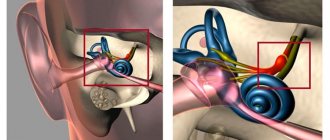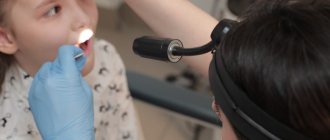If you experience a feeling of vomiting and feel dizzy, then this is a warning bell from the body, which indicates serious illness. Only a doctor can determine the cause of a pathogenic condition. Self-examination and self-medication will not lead to results. Treatment should be carried out using comprehensive measures.
Dizziness (vertigo syndrome) is a feeling during which a person feels that all objects are spinning around him.
Nausea is the stomach's desire to vomit.
Causes of the pathogenic condition
The content of the article
Symptoms that are not due to disease.
If you suddenly feel dizzy and nauseous, do not be afraid. Usually the reasons for this condition are:
- a person spun on a carousel, swung on a swing, or was at a height for a long time;
- a person eats poorly, goes hungry and is on the wrong diet;
- thoughts are confused;
- stress and nervous environment;
- long stay in an unventilated and stuffy office;
- magnetic storms;
- taking medications and vitamins without consulting a doctor;
- got sick in the car;
- seasickness.
Causes of the pathogenic condition in girls.
Women have an unstable emotional and hormonal state, unlike men. They often go on diets, fast, and do fasting days to lose weight and maintain body shape.
As a result of such activities, their glucose levels decrease, frequent dizziness begins, digestive ailments worsen, and hair falls out, which leads to stress and depression.
Dizziness in women is possible only if they are pregnant, have recently been under stress, premenstrual syndrome is about to begin, or it is time for menopause.
Causes of nausea and dizziness associated with illness.
Severe dizziness and nausea lead to loss of coordination and balance. These anomalies indicate diseases:
- osteochondrosis of the cervical spine;
- injuries to the head, hearing organs and spine;
- migraine;
- inflammation of the middle ear (labyrinthitis);
- episyndrome;
- Meniere's syndrome;
- disruption of the circulatory system of the brain;
- brain tumors;
- alcohol intoxication;
- spinal cord diseases;
- infections and meningitis;
- perilymphatic fistula;
- stroke.
An ambulance should be called if the patient, in addition to nausea and dizziness, experiences:
- fainting;
- vomit;
- elevated temperature;
- cardiopalmus;
- tingling hands;
- darkening of the eyes;
- ears began to hear poorly;
- dizzy after lying down for more than an hour;
- grainy image;
- pallor.
Pathogenic condition due to vegetative-vascular dystonia.
Staggering while walking, objects that “float”, nausea, anxiety, confusion of thoughts, a feeling of extreme hunger and lack of oxygen in the brain (the head is pressed from all sides) and dizziness are indicators of vegetative-vascular dystonia.
When you suddenly and abruptly change your body position, you begin to feel dizzy for a short period of time, and your health worsens due to the fact that the vessels do not have time to deliver a sufficient volume of blood to the brain.
Causes of pathogenic conditions that occur in the dark
. Systems such as the visual, vestibular, proprioceptive, and cerebral systems collectively regulate our balance. But if at least one of them has a disruption in the functioning of the organ, then dizziness will begin at night.
Causes of the pathogenic condition in a patient with diabetes mellitus.
During attacks, a patient with diabetes experiences chills, dizziness and nausea. This can lead to fainting or even coma. To avoid such symptoms, you need to get tested in advance, take the right amount of insulin or take medications, follow your diet and measure your sugar more often.
What to do if you feel dizzy and feel nauseous
Independent actions in case of dizziness and nausea:
- do not make quick movements, restore breathing;
- look at one specific object;
- drink cold water with a small piece of sugar;
- in case of strong emotional stress, drink a sedative or tea with oregano or chamomile;
- when your blood pressure drops, drink strong brewed black tea with chocolate (important: green tea, on the contrary, lowers blood pressure);
- if you have hypoglycemia (diabetics), eat candy with a lemon or mint flavor, or a piece of sugar, wash it down with warm tea;
- go outside or ventilate the room;
- if you start to feel very sick and everything around you is spinning, then you need to bend over and let your head go between your knees.
If the advice does not help, immediately call 003.
Clinical picture
Nausea, depending on the cause, may be accompanied by other symptoms.
- When eating fatty foods: abdominal pain, vomiting, weakness, drowsiness.
- Nausea is often observed in a child as a reaction of the body to an allergen. Adults and children equally experience: rash, redness, diarrhea, flatulence, runny nose, dry cough.
- In case of poisoning: flatulence, diarrhea, headaches, weakness.
In diseases, depending on the diagnosis, the manifestations differ:
- Diseases of the liver and gastrointestinal tract often resolve with vomiting, weakness, and body temperature rises to 39 degrees. There is a feeling of heaviness in the abdomen, diarrhea/constipation, and flatulence.
- Appendicitis will almost always be accompanied by acute pain in the lower abdomen and increased body temperature.
- With diseases of the cardiovascular system, nausea in the morning can turn into weakness in the afternoon, headaches, dizziness, and loss of consciousness.
Normally, in the absence of health problems, a person needs to eliminate the cause of the symptom. For example, exclude exposure to odors, consult a doctor about the need to take medications that calm the nervous system (if we are talking about psychological factors). Take a sorbent to remove toxins from the body in case of allergies or poisoning.
If, after treatment, pain, dizziness and nausea, as well as other accompanying symptoms, do not go away, you should urgently consult your doctor or gastroenterologist.
Diagnostics
The doctor clarifies all the symptoms, their frequency, asks about your diet and sleep patterns, and how often you are in stressful situations. Asks about head, hearing, and vision injuries; do you take vitamins and medications, drink alcohol, and about the pace of life.
After all clarifications, the doctor refers to:
- blood analysis;
- echocardiography;
- electrocardiography;
- CT (computed tomography);
- MRI of the brain (magnetic resonance imaging);
- radiography;
- vestibulometry;
- audiography;
- electroencephalogram;
- Ultrasound.
Treatment methods
The treatment regimen is selected individually. Most patients are prescribed a course of medications to take at home. It is recommended to undergo repeated examinations periodically to monitor the dynamics of the disease. The course may include the following stages:
- drugs to increase or decrease blood pressure;
- a special diet for atherosclerosis, heart and vascular diseases, which excludes fatty foods, fried foods, salt and spices in large quantities;
- migraine pain relievers;
- antibiotics – prescribed for inflammation of the inner ear, for the treatment and prevention of purulent complications;
- A course of vitamins and microelements is selected based on the results of a blood test.
The Clinical Brain Institute offers an individual approach to each patient. Here you can undergo comprehensive diagnostics, receive recommendations from specialists with many years of experience, and also stay for treatment in a hospital setting.
Prevention
After eliminating the causes of the condition, you should not return to old habits or lifestyle that caused health problems. For prevention, it is better to lead a healthy lifestyle; to do this, just follow the recommendations:
- normalize the drinking regime (there is a lot of information on the Internet for calculating water norms). Not only your health will improve, but also the condition of your skin and hair.
- stop drinking alcoholic drinks.
- reduce the amount of coffee you drink (if you cannot give up coffee, then you need to increase the amount of water you drink - 50 ml of water for 1 cup of coffee).
- eat healthy and balanced (fruits, vegetables, cereals, dairy products).
- spend more time outdoors (walk at least 10,000 steps a day).
- relax more to improve your mental state (reading a book every day, playing sports (helps with osteochondrosis), watching comedies, meeting friends, macro and mini travel, listening to calm music (classical music has a much positive effect on the body than pop, rap and rock), visiting the pool, riding bicycles).
- maintain a sleep schedule and get enough sleep (2 hours before bedtime, do not sit on your phone or laptop).
- neutralize the source of stress and nervous breakdowns (quit your unloved job, erase people unworthy of you from your life).
- After a hard day at work, take a relaxing bath with lavender oil or visit the pool.
- undergo a medical examination every six months.
- ventilate the room before going to bed.
- reduce time spent on the phone and laptop.
- maintain good posture (wrong posture affects the functioning of all organs).
- Clean up your apartment or house, as clutter leads to stress.
- attend manual therapy sessions.
- go to therapeutic massage and physical exercise.
- be more positive and follow all the doctor’s orders and prohibitions.
- If you are allergic to eau de toilette and perfume waters, try to always carry antiallergic medications, ammonia with you, and avoid contact with a person who uses such perfumes.
If you are diabetic, follow these tips:
- do not allow sugar levels to go too high or low;
- eat more cucumbers and tomatoes. they have virtually no calories and contain a sufficient amount of fiber and water;
- give up store-bought sweets, they are more harmful to the body than chocolate;
- replace sunflower oil with olive or coconut oil;
- always carry insulin and a glucometer, dark chocolate and water with you;
- replace white flour with rye and oatmeal;
- Replace pasta made from white flour with products made from buckwheat flour;
- Eat more protein, it helps lower blood sugar;
- eat a banana before lunch;
- don’t skip breakfast;
- eat at exactly the right time;
- take lunch and dinner to work;
- Sweeteners raise sugar levels, so don’t buy them;
- Do not delay treatment of colds and flu.
Take care of yourself and your health! And remember, nerve cells do not regenerate!
ONLINE REGISTRATION at the DIANA clinic
You can sign up by calling the toll-free phone number 8-800-707-15-60 or filling out the contact form. In this case, we will contact you ourselves.
If you find an error, please select a piece of text and press Ctrl+Enter
First aid
In the absence of chronic and current diseases, the doctor will prescribe treatment aimed at restoring the body. First of all, the patient will be advised to:
- Establish an enhanced drinking regime.
- Take anti-inflammatory and painkillers.
- In some cases, when it comes to severe forms of roto- or enterovirus, antibiotics are prescribed.
To remove toxins from the body, therapy may be accompanied by simultaneous intake of sorbents. The Sorbex series are safe enterosorbents that do not treat the disease, but can alleviate its symptoms and course. Their composition is based on granular activated carbon, which absorbs harmful substances and removes them from the body naturally. In the available line of products you can choose drugs for children and adults.
Diseases that may cause dizziness
Most often, dizziness occurs with the following disorders:
- ear diseases
, first of all:- Benign paroxysmal positional vertigo (BPPV).
BPPV accounts for up to 80% of all cases of true dizziness. The name of this disease means that it does not pose a serious threat (therefore - benign), that attacks of dizziness occur suddenly (therefore - paroxysmal), that the attack begins when the position of the head changes - turning or tilting (therefore - positional). The cause of dizziness is the displacement of hard formations (otoliths) in the inner ear. Although BPPV may cause nausea and weakness, no other pathological changes are found on examination; - labyrinthitis
(inflammation of the inner ear); - Meniere's disease
(characterized by an increase in fluid in the cavity of the inner ear) - causes severe dizziness, accompanied by tinnitus, nausea, vomiting, and a feeling of fullness in the ear; may lead to hearing loss; - tumor (neurinoma) of the auditory nerve
; - barotrauma
– rupture of the eardrum due to a sudden change in pressure; - other ear diseases
- otitis media, eustachitis, cerumen plug;
, including:
migraine
(caused by disorders of the brain structures responsible for pain and other sensations) - dizziness during migraine is a harbinger of a painful attack;
;
;
- diseases of the cervical spine
(primarily
osteochondrosis
); - psychogenic dizziness
is not true dizziness (that is, it is not associated with pathology of the vestibular apparatus). Most often described as a feeling of unsteadiness, brain fog, fear of falling and passing out. Occurs as a reaction to stress, usually accompanied by other psychogenic symptoms; - some other diseases.
Useful tips
If you are worried about nausea and vomiting, weakness, here are some useful recommendations that will help alleviate the condition:
- Abundant air flow - you can open a window or sit in front of a fan.
- Drinking fluids. Drink more water, it will also help prevent dehydration and speed up your metabolism.
- Compress. The feeling of nausea will go away if you apply a cold compress to the forehead and neck area.
- Do not lie down, the bitterness in your mouth and nausea will intensify - gastric juice may rise up the esophagus. This is why gastroenterologists do not advise “resting” after eating.
It is recommended to drink at least 1 glass of warm water every morning on an empty stomach. The liquid will “wake up” the gastrointestinal tract and normalize metabolism. Also follows:
- minimize the amount of “heavy” food in the diet;
- exclude carbonated drinks;
- take care of the cleanliness of products that do not require heat treatment (berries, vegetables, fruits).
As a sorbent for quick relief of abdominal pain, if nausea and vomiting occur due to poisoning and allergies, always have supplements in the form of Sorbex enterosorbent in your medicine cabinet.
SORBEX® Duo
SORBEX® Classic
SORBEX® Ultra
Medicines and dietary supplements of the Sorbex series (Sorbex, Sorbex Ultra, Sorbex DUO) are based on improved activated carbon. Thanks to modern production technologies, the sorption capacity of Sorbex® has been significantly increased, which ensures its high sorption ability to absorb toxins, bacteria and other harmful substances.
Sorbex capsules contain activated carbon in the form of granules, which ensures adsorption activity throughout the entire residence time of the sorbent in the gastrointestinal tract. The effectiveness of granular carbon almost does not decrease within 36-48 hours, which allows you to increase the intervals between doses of this drug and reduce the dose. For adults with chronic diseases caused by endogenous intoxications, it is recommended to take 2–6 capsules 3 times a day for 10–15 days. For children over 7 years old, take 1-3 capsules 3-4 times a day. The drug is administered orally with water at intervals of 1.5–2 hours before or after meals or medications.
SORBEX ULTRA is a dietary supplement in the form of capsules based on highly dispersed activated carbon with extremely high adsorption activity, therefore it is especially effective for acute poisoning. Adults are recommended to take 1 capsule 2-3 times a day.
SORBEX DUO is a dietary supplement for the comprehensive cleansing of toxins from the body, combining the unique properties of a hydrocarbon sorbent in the form of granules and milk thistle extract. Thanks to this composition, SORBEX DUO helps reduce the manifestations of intoxication, protects and restores liver function. Adults take 2-3 capsules 2-3 times a day. Children aged 7 years and older – 1 capsule 2-3 times a day before or 1-1.5 hours after meals. Duration of use from 3 to 15 days
It should be borne in mind that sometimes nausea may be the only early sign of serious illness, so this symptom should not be ignored and you should consult a doctor.
Attention! Self-medication can harm your health!











